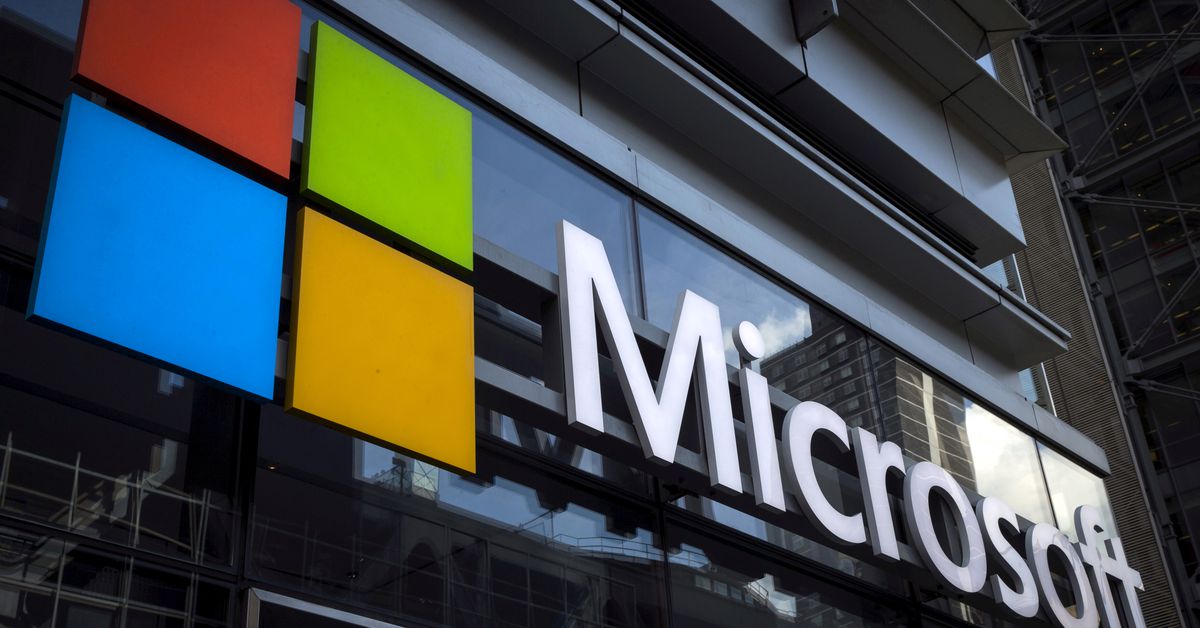[1/6] A Microsoft logo is seen on an office building in New York City on July 28, 2015. REUTERS/Mike Segar/File Photo/File Photo
Dec 21 (Reuters) – Tech giants including Microsoft (MSFT.O) and Google (GOOGL.O) on Monday joined Facebook's (FB.O) legal battle against hacking company NSO, filing an amicus brief in federal court that warned that the Israeli firm's tools were "powerful, and dangerous."
The brief, filed before the U.S. Court of Appeals for the Ninth Circuit, opens up a new front in Facebook's lawsuit against NSO, which it filed last year after it was revealed that the cyber surveillance firm had exploited a bug in Facebook-owned instant messaging program WhatsApp to help surveil more than 1,400 people worldwide.
NSO has argued that, because it sells digital break-in tools to police and spy agencies, it should benefit from "sovereign immunity" – a legal doctrine that generally insulates foreign governments from lawsuits. NSO lost that argument in the Northern District of California in July and has since appealed to the Ninth Circuit to have the ruling overturned.
Microsoft, Alphabet-owned Google, Cisco (CSCO.O), Dell Technologies-owned VMWare (DELL.N) and the Washington-based Internet Association joined forces with Facebook to argue against that, saying that awarding soverign immunity to NSO would lead to a proliferation of hacking technology and "more foreign governments with powerful and dangerous cyber surveillance tools."
That in turn "means dramatically more opportunities for those tools to fall into the wrong hands and be used nefariously," the brief argues.
NSO – which did not immediately return a message seeking comment – argues that its products are used to fight crime. But human rights defenders and technologists at places such as Toronto-based Citizen Lab and London-based Amnesty International have documented cases in which NSO technology has been used to target reporters, lawyers and even nutrionists lobbying for soda taxes.
Citizen Lab published a report on Sunday alleging that NSO's phone-hacking technology had been deployed to hack three dozen phones belonging to journalists, producers, anchors, and executives at Qatar-based broadcaster Al Jazeera as well as a device beloning to a reporter at London-based Al Araby TV.
NSO's spyware was also been linked to the slaying of Washington Post journalist Jamal Khashoggi, who was murdered and dismembered in the Saudi consulate in Istanbul in 2018. Khashoggi's friend, dissident video blogger Omar Abdulaziz, has long argued that it was the Saudi government's ability to see their WhatsApp messages that led to his death.
NSO has denied hacking Khashoggi, but has so far declined to comment on whether its technology was used to spy on others in his circle.
Our Standards: The Thomson Reuters Trust Principles.
Reuters, the news and media division of Thomson Reuters, is the world’s largest multimedia news provider, reaching billions of people worldwide every day. Reuters provides business, financial, national and international news to professionals via desktop terminals, the world's media organizations, industry events and directly to consumers.
Build the strongest argument relying on authoritative content, attorney-editor expertise, and industry defining technology.
The most comprehensive solution to manage all your complex and ever-expanding tax and compliance needs.
The industry leader for online information for tax, accounting and finance professionals.
Access unmatched financial data, news and content in a highly-customised workflow experience on desktop, web and mobile.
Browse an unrivalled portfolio of real-time and historical market data and insights from worldwide sources and experts.
Screen for heightened risk individual and entities globally to help uncover hidden risks in business relationships and human networks.
All quotes delayed a minimum of 15 minutes. See here for a complete list of exchanges and delays.
© 2022 Reuters. All rights reserved



